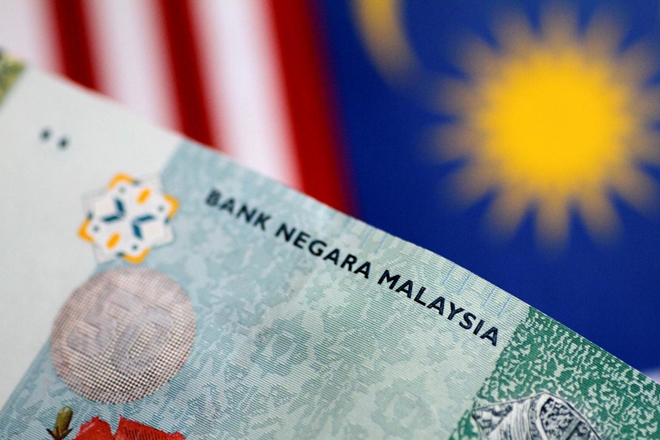
Published by Business Today, The Star, Biztech.asia & New Straits Times, image from Foreign Brief.
While government tries to recover the economy and livelihoods from the catastrophe caused by the Covid-19 pandemic and the Movement Control Order (MCO), concerns about higher fiscal deficit and public debt have surfaced but it is not the right time to restrict spending for the sake of the people and also the nation.
According to the Finance Minister Tengku Zafrul, fiscal deficit is expected to register around 5.8 percent to 6 percent of Gross Domestic Product (GDP) this year. Local economists are expecting even higher deficit, ranging from 6.5 percent to 7.5 percent.
This is after taking into account the stimulus packages the government have announced so far which total up to RM305 billion.
Given the higher fiscal deficit, government debt is also expected to elevate this year.
The current debt-to-GDP ratio stands at 53 per cent of GDP and according to Tengku Zafrul, the year-end figure will come around 56 per cent of GDP, higher than last year’s ratio – 52.5 percent of GDP.
However, this projection remains below the approved statutory debt ceiling of 60 percent, albeit the fact that it has gone up due to the unprecedented crisis.
In August, the Parliament voted to allow the government to borrow up to 60 percent of GDP in the effort to ease the burdens experienced by the people and businesses.
According to the executive director of Socio-Economic Research Centre (SERC) Lee Heng Guie, the higher debt ceiling ratio provides the ability for the government to borrow an additional RM70 billion to RM75 billion.
Despite seeing a rise in debt levels, unprecedented time calls for unprecedented measures and government’s priority now is to save lives and livelihoods temporarily given the expectation that economy will contract within the range of 3.5 percent to 5.5 percent and then start to expand by 5.5 to 8 percent in 2021.
To be more specific, increased government spending is needed and hoped by many to prop up domestic consumption (holds a share of 59.4 percent of GDP) that has been gloomy, reflected by the first and second quarter GDP numbers.
Notably, this issue appeared as one of the emerging issues discussed during EMIR Research’s focused group discussion for the 3Q20 poll. Instead of worrying about higher budget deficit, the discussants thought that the government should go all out this year if that’s what it takes to save the livelihoods particularly the unemployed and if it is not addressed, social consequences will get worse!
It’s also best to show how important it is for the government to spend in ensuring smooth recovery based on what the Federal Reserve Chair Jerome Powell said recently, “If the recovery simply slows too much, it could lead to tragic outcomes for the less well-off, widening inequality and a situation where weakness feeds on weakness.”
But some will question the effect of spending more than what we earn but there is always a solution to every problem.
Aside from the fact that government can actually spend more given the reason mentioned previously, there are ways to improve the fiscal position going forward, i.e. in the medium term when economic condition gets much better.
Even the Finance Minister has mentioned in June that the government still have room to spend given that historically, fiscal deficit reached at even a higher rate of 6.7 per cent during Global Financial Crisis in 2009.
Furthermore, he himself said that a rebalancing approach will be taken to bring fiscal deficit to a better position once economic conditions normalise in the future.
It is indeed a good time that in Budget 2021 announcement that will be on 6 November, measures to shore up government’s revenue base will be touched on and this is important for everyone to adjust to the information.
Leakages should also be monitored and reduced to ensure there are no or less unnecessary expenses within the government. Another way to try to go about it is perhaps by cutting civil servants’ emoluments as it accounts for 34.3 per cent of total operating expenditure – the largest share among other components.
Of course, a medium-term fiscal framework to strengthen fiscal discipline needs to be planned with suggestions to broaden government income stream through tax-related changes such as reintroduction of GST. But the timing of implementation of such measures also needs to be right.
Nur Sofea Hasmira Azahar is Research Analyst at EMIR Research, an independent think tank focused on strategic policy recommendations based on rigorous research.
Diterbitkan oleh Malaysiakini.
Dalam usaha kerajaan untuk memulihkan ekonomi dan kehidupan rakyat daripada kejutan pandemik Covid-19 dan perintah kawalan pergerakan (PKP), kerisauan terhadap peningkatan defisit fiskal dan hutang kerajaan sudah mula nampak jelas.
Namun, sekarang bukan masa yang sesuai untuk pihak kerajaan menyekat perbelanjaan mereka demi kepentingan rakyat yang sudah ramai terjejas dan juga negara.
Menurut Menteri Kewangan Tengku Zafrul Tengku Abdul Aziz, defisit fiskal pada tahun ini dijangka meningkat antara 5.8 dan enam peratus daripada Keluaran Dalam Negara Kasar (KDNK).
Dalam pada itu, pakar ekonomi tempatan menjangkakan defisit fiskal yang lebih tinggi, di antara 6.5 peratus dan 7.5 peratus setelah mengambil kira semua pakej rangsangan ekonomi berjumlah RM305 bilion yang telah diumumkan oleh kerajaan.
Memandangkan defisit fiskal dijangkakan lebih tinggi, hutang kerajaan juga dijangka akan meningkat pada tahun ini.
Nisbah hutang kepada KDNK sekarang berada pada 53 peratus daripada KDNK dan dijangkakan meningkat sekitar 56 peratus daripada KDNK untuk tahun ini. Namun, jangkaan ini masih rendah berbanding dengan had hutang negara yang telah diluluskan oleh parlimen pada bulan Ogos iaitu 60 peratus daripada KDNK.
Malah Malaysia sebelum ini telah menaikkan had hutang statutori ketika krisis kewangan global kepada 45 peratus daripada 40 peratus pada Jun 2008 dan seterusnya 55 peratus pada Julai 2009.
Menurut pengarah eksekutif Pusat Penyelidikan Sosioekonomi (Serc) Lee Heng Guie, had siling hutang yang telah ditetapkan pada bulan Ogos itu membolehkan kerajaan untuk membuat pinjaman tambahan bernilai RM70 bilion ke RM75 bilion.
Walaupun paras hutang akan menjadi lebih tinggi, kegawatan ekonomi pada ketika ini memerlukan langkah rangsangan yang tidak pernah diambil sebelum ini. Keutamaan kerajaan sekarang adalah untuk menyelamatkan nyawa dan kehidupan masyarakat yang terjejas teruk akibat pandemik Covid-19.
Lebih spesifik lagi, perbelanjaan kerajaan perlu ditingkatkan untuk merancakkan perbelanjaan domestik yang sedang suram kerana batasan dalam pergerakan dan keadaan ekonomi yang tidak mengizinkan.
Isu moratorium ini juga telah rancak dibincangkan semasa perbincangan kumpulan fokus (focused group discussion) Emir Research untuk kaji selidik suku ketiga tahun ini. Semasa perbincangan tersebut, para peserta berpendapat bahawa pihak kerajaan perlu berusaha habis-habisan bagi menyelamatkan golongan masyarakat yang tidak bernasib baik terutamanya mereka yang sedang menganggur tanpa memikirkan defisit fiskal yang akan meningkat.
Pada masa yang sama, mungkin ada yang risau tentang kesan perbelanjaan negara yang tinggi tetapi setiap masalah pasti ada jalan penyelesaiannya.
Bajet 2021
Kerajaan masih boleh memperbaiki kedudukan kewangan negara pada masa hadapan dan masih ada ruang untuk berbelanja kerana had hutang sudah dinaikkan kepada 60 peratus. Dalam sejarah, defisit fiskal pernah mencapai kadar yang lebih tinggi pada 6.7 peratus daripada KDNK semasa krisis kewangan global.
Tambahan lagi, Tengku Zafrul sendiri menyatakan bahawa kedudukan fiskal negara boleh diseimbangkan kepada posisi yang lebih baik setelah keadaan ekonomi pulih.
Sememangnya Bajet 2021 pada 6 November merupakan masa yang baik bagi pihak kerajaan untuk mengumumkan langkah-langkah yang akan diambil untuk memperbaiki hasil pendapatan negara supaya masyarakat dapat bersiap sedia untuk apa sahaja yang bakal berlaku.
Kebocoran wang kerajaan atau perbelanjaan yang tidak penting juga harus dipantau bagi memastikan tidak berlaku pembaziran. Selain itu, emolumen kakitangan awam yang merupakan bahagian terbesar dalam perbelanjaan mengurus (34.3 peratus) mungkin boleh dipotong.
Akhir sekali, rangka kerja fiskal untuk jangka masa sederhana perlu dirancang bagi memperkuat disiplin fiskal dengan cadangan untuk mengembangkan hasil pendapatan negara melalui perubahan cukai seperti pengenalan semula cukai barang dan perkhidmatan (GST) ataupun memperluas cukai jualan dan perkhimatan (SST). Tetapi, pelaksanaan harus dilakukan pada waktu yang sesuai dan tepat.
Nur Sofea Hasmira Azahar merupakan Penganalisis Penyelidik di EMIR Research, sebuah organisasi pemikir bebas yang fokus kepada pencernaan saranan-saranan dasar strategik berteraskan penyelidikan yang terperinci, konsisten dan menyeluruh.

